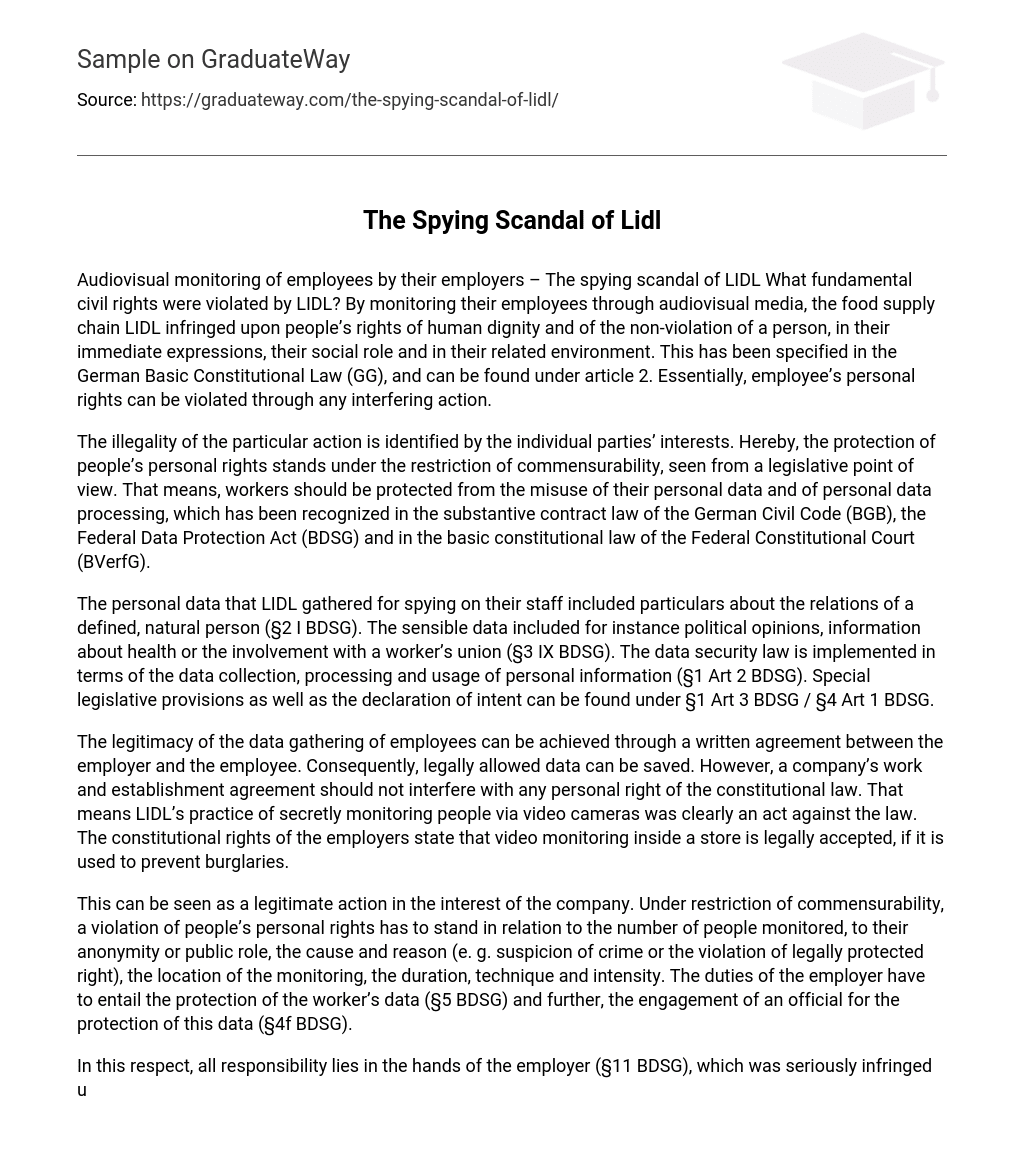Audiovisual monitoring of employees by their employers – The spying scandal of LIDL What fundamental civil rights were violated by LIDL? By monitoring their employees through audiovisual media, the food supply chain LIDL infringed upon people’s rights of human dignity and of the non-violation of a person, in their immediate expressions, their social role and in their related environment. This has been specified in the German Basic Constitutional Law (GG), and can be found under article 2. Essentially, employee’s personal rights can be violated through any interfering action.
The illegality of the particular action is identified by the individual parties’ interests. Hereby, the protection of people’s personal rights stands under the restriction of commensurability, seen from a legislative point of view. That means, workers should be protected from the misuse of their personal data and of personal data processing, which has been recognized in the substantive contract law of the German Civil Code (BGB), the Federal Data Protection Act (BDSG) and in the basic constitutional law of the Federal Constitutional Court (BVerfG).
The personal data that LIDL gathered for spying on their staff included particulars about the relations of a defined, natural person (§2 I BDSG). The sensible data included for instance political opinions, information about health or the involvement with a worker’s union (§3 IX BDSG). The data security law is implemented in terms of the data collection, processing and usage of personal information (§1 Art 2 BDSG). Special legislative provisions as well as the declaration of intent can be found under §1 Art 3 BDSG / §4 Art 1 BDSG.
The legitimacy of the data gathering of employees can be achieved through a written agreement between the employer and the employee. Consequently, legally allowed data can be saved. However, a company’s work and establishment agreement should not interfere with any personal right of the constitutional law. That means LIDL’s practice of secretly monitoring people via video cameras was clearly an act against the law. The constitutional rights of the employers state that video monitoring inside a store is legally accepted, if it is used to prevent burglaries.
This can be seen as a legitimate action in the interest of the company. Under restriction of commensurability, a violation of people’s personal rights has to stand in relation to the number of people monitored, to their anonymity or public role, the cause and reason (e. g. suspicion of crime or the violation of legally protected right), the location of the monitoring, the duration, technique and intensity. The duties of the employer have to entail the protection of the worker’s data (§5 BDSG) and further, the engagement of an official for the protection of this data (§4f BDSG).
In this respect, all responsibility lies in the hands of the employer (§11 BDSG), which was seriously infringed upon by the food supply chain LIDL. The employees of LIDL acted upon this infringement by referring to §33 and §34 of the Federal Data Protection Act (BDSG), claiming a compensation of material and immaterial damages. In the overall chain of events, LIDL’s CEO of the German market had to leave the company. However, this could not prevent the loss of LIDL’s good reputation and the subsequent scandal surrounding the food supplier.





